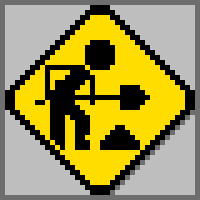 BASIC (Beginner’s All-purpose Symbolic Instruction Code) is a family of general-purpose, high-level programming languages whose design philosophy emphasizes ease of use. In 1964, John G. Kemeny, Thomas E. Kurtz and Mary Kenneth Keller designed the original BASIC language at Dartmouth College in New Hampshire, United States. They wanted to enable students in fields other than science and mathematics to use computers. At the time, nearly all use of computers required writing custom software, which was something only scientists and mathematicians tended to learn.
BASIC (Beginner’s All-purpose Symbolic Instruction Code) is a family of general-purpose, high-level programming languages whose design philosophy emphasizes ease of use. In 1964, John G. Kemeny, Thomas E. Kurtz and Mary Kenneth Keller designed the original BASIC language at Dartmouth College in New Hampshire, United States. They wanted to enable students in fields other than science and mathematics to use computers. At the time, nearly all use of computers required writing custom software, which was something only scientists and mathematicians tended to learn.
Versions of BASIC became widespread on microcomputers in the mid-1970s and 1980s. Microcomputers usually shipped with BASIC, often in the machine’s firmware. Having an easy-to-learn language on these early personal computers allowed small business owners, professionals, hobbyists, and consultants to develop custom software on computers they could afford. In the 2010s, BASIC was popular in many computing dialects and in new languages influenced by BASIC, such as Microsoft’s Visual Basic. GOTO https://en.wikipedia.org/wiki/BASIC
Yabasic (Yet Another BASIC) is a free and open source BASIC interpreter for Windows and Unix platforms.[1] Yabasic was originally developed by Marc-Oliver Ihm. GOTO https://en.wikipedia.org/wiki/Yabasic